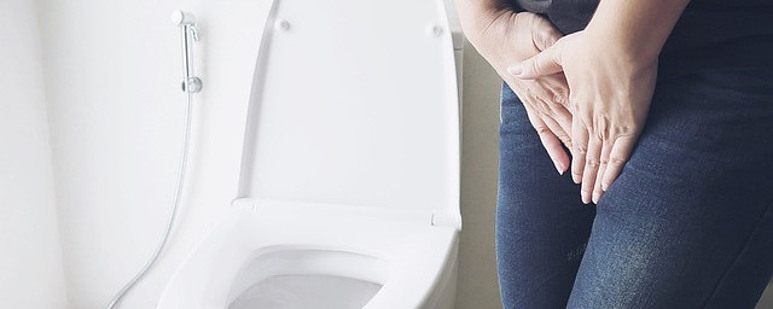
For millions worldwide, a leaky bladder, also known as urinary incontinence, silently chips away at their quality of life. While there are various treatments for urinary incontinence, we will explore the role of diet, specifically highlighting vitamin B1 deficiency and insulin resistance. In this comprehensive article, we explore how dietary choices, including a healthy ketogenic (keto) diet and intermittent fasting, can be a couple of ways to stop bladder leakage. Diet may hold the key to managing this and could even provide ways to stop bladder leakage in some cases.
Understanding Urinary Incontinence
Before delving into the dietary aspects, it’s essential to understand urinary incontinence and its various forms. Urinary incontinence is not merely an inconvenience; it can significantly impact daily life. Therefore, it is important to explore the different types and their implications.
Types of Urinary Incontinence
- Stress Incontinence: This occurs when physical activities like coughing, sneezing, or lifting place extra pressure on the bladder. It’s often linked to weakened pelvic floor muscles, a common occurrence in women after childbirth. Excess body weight can also place added pressure on the bladder and pelvic muscles, increasing the risk of stress incontinence.
- Urge Incontinence: Known as overactive bladder, this type is characterized by sudden, intense urges to urinate, often followed by involuntary urine leakage. Overactive bladder muscles are often the culprit.
- Overflow Incontinence: Occurs when the bladder doesn’t empty fully, leading to constant dribbling. Conditions like an enlarged prostate in men or nerve damage can trigger this form.
B1 Deficiency and Urinary Incontinence
Vitamin B1, also known as thiamine, is a vital nutrient that plays a crucial role in nerve function and muscle control. Its deficiency can lead to a range of health issues, including those related to bladder control. Metabolic and neurological disorders like diabetes, multiple sclerosis, or spinal cord injuries can disrupt nerve signals between the bladder and brain, thereby indirectly affecting bladder control.
This potential connection between a “leaky bladder” (urinary incontinence) and vitamin B1 is due to the fact that B1 is a nutrient that plays a pivotal role in various bodily functions, including nerve function and muscle control. While vitamin B1 is important for overall health, there needs to be more research to establish a direct link between vitamin B1 deficiency and urinary incontinence. However, it’s worth noting that certain health conditions that can lead to vitamin B1 deficiency also pose an increased risk for bladder dysfunction and potentially contribute to urinary incontinence.
Thiamine Deficiency
- Impact on Nerve Function: Thiamine is essential for maintaining nerve function. A thiamine deficiency can lead to neuropathy, a condition characterized by nerve damage. Damage to nerves involved in bladder control can lead to urinary incontinence, particularly urge incontinence. Severe vitamin B1 deficiency, known as thiamine deficiency or beriberi, can also damage nerves throughout the body. If the nerves that control bladder function are affected, it could lead to problems with bladder control.
- Alcohol Abuse: Chronic alcohol abuse can lead to thiamine deficiency, which, in turn, can contribute to neurological issues, including potential effects on bladder function.
- Diabetes Connection: Thiamine deficiency is more common in individuals with diabetes due to factors like increased urine output, gastrointestinal issues, and poor dietary habits. For those with diabetes, the risk of urinary incontinence can be amplified due to diabetes-induced neuropathy. Neuropathy, or nerve damage, is a well-documented complication. High blood sugar levels can wreak havoc on the nervous system, including the nerves controlling bladder function. This damage can lead to poor bladder control and contribute to urinary incontinence.
As previously stated, Vitamin B1, a.k.a. thiamine, is an essential nutrient that helps to control and regulate various bodily functions, including the metabolism of carbohydrates, the functioning of the nervous system, and the production of energy. While vitamin B1 is important for overall health, its relationship with diabetes is of particular interest, as diabetes, can impact thiamine levels and vice versa. Maintaining a balanced diet that includes essential nutrients like vitamin B1 is important for overall health. However, addressing urinary incontinence typically involves a more comprehensive assessment and management plan tailored to the individual’s unique needs and circumstances.
Insulin Resistance and Bladder Health
Insulin resistance, a hallmark of type 2 diabetes, can be a contributing factor to urinary incontinence. Understanding this connection is crucial to managing the condition.
Insulin Resistance
- Impact on Nerves: Insulin resistance can damage nerves, including those controlling the bladder. This can lead to urinary urgency and leakage.
- Obesity and Stress Incontinence: Insulin resistance often accompanies obesity, which places extra pressure on the bladder. Obesity-related stress incontinence can improve with better insulin control.
The Promise of the Ketogenic Diet
The ketogenic (keto) diet, is known for its emphasis on low carbohydrates and high fats and is renowned for its potential health benefits. While primarily recognized for its effects on weight loss and blood sugar control, a keto diet may indirectly benefit urinary incontinence management. Although the ketogenic (keto) diet is not a guaranteed method for preventing bladder leakage, it may have some indirect benefits that can potentially help reduce the risk of urinary incontinence.
It’s important to note that the relationship between the keto diet and bladder health is complex, and individual responses can vary. Here are some ways in which the keto diet may provide certain benefits related to bladder health:
- Weight Loss and Stress Incontinence: The keto diet’s weight loss potential can alleviate stress incontinence. Obesity is a known risk factor for urinary incontinence, particularly stress incontinence, which is related to the weakening of pelvic floor muscles. The keto diet, when followed correctly, can lead to significant weight loss by reducing the pressure on the bladder. This is especially helpful in individuals with obesity-related incontinence. Shedding those extra pounds may lead to improved bladder control.
- Reduced Inflammatory Response: Some studies suggest that the keto diet may have anti-inflammatory effects. Chronic inflammation can contribute to various health issues, including bladder dysfunction. By reducing inflammation, the keto diet may indirectly support bladder health.
- Blood Sugar Stability: Achieving ketosis, a state where the body relies on fats for fuel, can stabilize blood sugar levels. Improved blood sugar control may help manage diabetes-related urinary symptoms, including urinary frequency and urgency.
- Reduced Fluid Intake at Night: On the keto diet, individuals often become more aware of their fluid intake, as hydration is essential. This heightened awareness can lead to more conscious fluid management, including limiting fluid intake in the evening. Reducing nighttime fluid intake may help minimize nighttime urination, which can be beneficial for individuals with incontinence.
It’s important to recognize that the keto diet may not be suitable for everyone, and its effects on bladder health can vary. Additionally, any dietary changes should be made in consultation with a healthcare provider, especially if you have underlying medical conditions or are taking medications. While the keto diet may have potential benefits related to bladder health, it’s not a guaranteed preventive measure for bladder leakage. Bladder health is influenced by a combination of factors, including genetics, lifestyle, and overall health.
Embracing Intermittent Fasting
Intermittent fasting (IF), an eating pattern alternating between fasting and eating windows, offers another avenue for addressing not only diabetes but also a leaky bladder. While intermittent fasting offers various health benefits, it is not a guaranteed method for preventing bladder leakage (urinary incontinence). However, IF can indirectly support bladder health and may be part of a broader approach to maintaining a healthy urinary system. Here’s how intermittent fasting may relate to bladder health:
- Gradual Weight Loss and Bladder Control: IF, coupled with a balanced diet, can facilitate gradual and sustainable weight loss, potentially benefiting those with obesity-related stress incontinence. Obesity is a known risk factor for urinary incontinence, particularly stress incontinence, which results from weakened pelvic floor muscles. Intermittent fasting can aid in weight management and weight loss, potentially reducing the risk or severity of incontinence in individuals with obesity-related issues.
- Metabolic Health: Intermittent fasting has been associated with improved metabolic health, including better blood sugar control and reduced insulin resistance. For individuals with diabetes,
better blood sugar control can help manage or reduce diabetes-related bladder problems, such as frequent urination. - Improved Inflammation: Some research suggests that intermittent fasting may have anti-inflammatory effects. Chronic inflammation can contribute to various health problems, including bladder dysfunction. By reducing inflammation, IF may indirectly support overall bladder health.
- Bladder Health and Hydration: During fasting periods, individuals may become more aware of their fluid intake and the importance of staying hydrated. This heightened awareness can lead to more conscious fluid management, including limiting fluid intake during fasting hours. Reducing fluid intake in the evening and nighttime could help minimize nighttime urination, which can be beneficial for individuals with incontinence.
- Potential Hormonal Benefits: Intermittent fasting may have positive effects on hormonal regulation, including hormones related to appetite and metabolism. These hormonal changes can influence overall health and well-being, potentially benefiting bladder function.
It’s important to note that intermittent fasting is not suitable for everyone, and its effects on bladder health can vary from person to person. Additionally, IF should be practiced with care and consideration of individual health conditions. While intermittent fasting may offer potential benefits for bladder health, it is just one component of a broader approach to maintaining a healthy urinary system.
Navigating the Path to a Leak-Free Life
Urinary incontinence, a condition that can profoundly affect one’s life, is a multifaceted challenge. While vitamin B1 deficiency and insulin resistance may be linked to its development and severity, dietary strategies offer a ray of hope. A well-balanced ketogenic diet and intermittent fasting can potentially improve bladder control. Achieving urinary continence may require a comprehensive approach, including proper blood sugar control and thiamine supplementation. Other factors, such as regular exercise, pelvic floor exercises, a balanced diet such as a Healthy Keto Diet, and Intermittent Fasting also play crucial roles in supporting bladder health and preventing urinary incontinence.
Every individual’s response to diet varies. Urinary incontinence is a multifaceted condition with various potential causes, including age, gender, underlying medical conditions, medications, lifestyle factors, and more.
If you are experiencing a “leaky bladder” or have concerns about your bladder function, it’s advisable to consult with a healthcare professional in the journey toward a leak-free life. They can conduct a thorough evaluation, identify potential underlying causes, and recommend appropriate treatments or interventions based on your specific situation. Customizing your Keto Diet and Intermittent Fasting regimen to suit your unique requirements to achieve better health is a must. This combination along with making sure you are not deficient in any essential vitamins like B1 will help in overcoming the issue of urinary incontinence.
**Click Here for more information on the V-Core Lift Essential Program!**